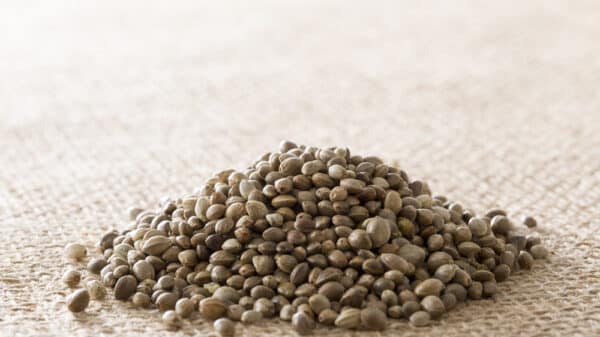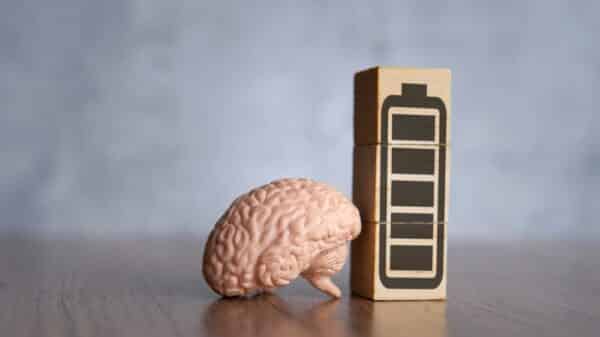As many women become increasingly wary of hormone replacement therapy (HRT) due to health concerns, natural alternatives are gaining attention. One such option is black cohosh, an herbal remedy that research suggests may alleviate menopause symptoms and other hormonal issues.
Black cohosh, named for its dark roots, belongs to the buttercup family and is indigenous to parts of North America. Historically, its roots and rhizomes have been utilized in folk medicine to address a range of ailments, including pain, anxiety, inflammation, and various reproductive issues.
What Is Black Cohosh?
Scientifically known as Actaea racemosa (or occasionally Cimicifuga racemosa), black cohosh has several common names, such as “black bugbane” and “fairy candle.” While it boasts diverse applications, its primary use remains in managing menopause-related symptoms.
The medicinal part of the plant comprises the roots and rhizomes, which contain beneficial compounds such as glycosides, isoferulic acids, and potentially phytoestrogens, contributing to its health properties.
The effectiveness of black cohosh supplements can vary based on preparation. One of the most studied brands, Remifemin, has shown promise in reducing hot flashes associated with menopause.
But does black cohosh influence estrogen levels? This question sparks debate, with some studies suggesting it may mimic estrogen, while others indicate it does not.
The exact mechanisms of how this herb works are still partially understood. Proposed theories suggest it may act as a selective estrogen receptor modulator or impact serotonin levels and inflammation pathways.
Benefits
1. May Help Reduce Menopause Symptoms, Including Hot Flashes
Numerous studies have examined black cohosh for alleviating menopause symptoms, particularly hot flashes. Although findings vary, often due to differences in study designs and supplement formulations, many women report positive experiences with this herbal remedy. Systematic reviews generally support its use in minimizing the frequency and severity of symptoms that many women face during this phase of life.
It’s also worth noting that breast cancer survivors have reported fewer sweating episodes when using black cohosh, highlighting its potential beyond just menopausal women. Ongoing studies are even exploring its effectiveness in managing symptoms among men post-prostate cancer treatment.
2. Can Reduce Sleep Disturbances
Insomnia and sleep disturbances can exacerbate menopause symptoms. Adequate sleep is crucial for maintaining hormonal balance. One medical trial indicated that black cohosh supplementation improved sleep quality in postmenopausal women suffering from sleep issues. By enhancing sleep, black cohosh may also contribute to mood stabilization, energy levels, and overall wellbeing.
3. Shows Promise for Treating Diabetes
Early research, including animal studies, indicates that black cohosh may positively affect type II diabetes management. Although this was a preliminary study, it suggests potential for its extract, Ze 450, to enhance insulin processing and aid in weight management.
4. May Help Manage PCOS
Black cohosh’s potential effects on hormonal balance may also extend to conditions like Polycystic Ovary Syndrome (PCOS), although further research is necessary to understand the full extent of its benefits in this area.
In conclusion, while more research is essential for solidifying the wide-ranging effects of black cohosh, current findings support its potential as a natural remedy for various hormonal concerns. As always, consulting with a healthcare provider before beginning any new supplement regimen is recommended.
Exploring the Benefits of Black Cohosh
1. Supporting Women’s Health
Recent research has highlighted the potential benefits of black cohosh, particularly for women facing challenges related to hormonal imbalances. For instance, studies have suggested that black cohosh may offer significant support in managing conditions such as polycystic ovary syndrome (PCOS). Some preliminary findings indicate that its effects might rival those of certain pharmaceutical treatments, making it a promising natural option.
2. A Safer Alternative to Hormone Replacement Therapy (HRT)
Hormone replacement therapy can be a double-edged sword, as it potentially raises breast cancer risks in women who use it for more than a decade. This concern has led many to seek safer alternatives like herbal supplements. A 2022 review notes that while black cohosh might not be as potent as conventional HRT, it offers a hormone-free solution for alleviating postmenopausal symptoms. This perspective opens the door for women desiring safe and natural menopausal relief options.
3. Promoting Bone Health
Black cohosh is rich in organic compounds that have shown promise in combatting osteoporosis. Research has identified phytoestrogens within black cohosh that may play a role in reducing the bone density loss linked to this condition. One compound known as ACCX has attracted attention for its potential as a novel treatment option for osteoporosis, as demonstrated in animal studies.
4. Managing Uterine Fibroids
Uterine fibroids, non-cancerous growths that often emerge during a woman’s reproductive years, can pose various health issues. In some parts of the world, these fibroids are treated with synthetic drugs like tibolone. However, studies have suggested that black cohosh could be more effective in managing these fibroids, additionally alleviating symptoms like severe menstrual cramps.
5. Alleviating Anxiety Symptoms
Historically, black cohosh was utilized for treating anxiety, a practice that modern research is validating. Animal studies have indicated that specific compounds derived from black cohosh exhibit sedative properties, positively influencing anxiety by interacting with GABA receptors. A study of menopausal women has also revealed that black cohosh, alongside other herbal remedies, can help mitigate mood swings and anxiety often experienced during this life stage.
6. How to Incorporate Black Cohosh into Your Routine
Initially introduced to European colonists by Native American tribes, black cohosh has a rich history in treating women’s health issues. Although it’s not commonly found in foods, it can be taken through various supplement forms, including capsules, tinctures, or tea.
While dosing can vary, typical recommendations range from 40 to 80 milligrams of a standardized extract daily. For specific symptoms like hot flashes, starting with 20 to 40 milligrams twice a day is advisable. If opting for tea, steeping 20 grams of dried root in about 34 ounces of water helps make an infusion beneficial for some.
7. Recommendations for Safe Use
Health organizations, including the American College of Obstetrics and Gynecology, suggest using black cohosh for a maximum of six months. It’s crucial to discuss any supplement use with a healthcare provider to ensure safety and effectiveness, especially regarding personalized health conditions.
In conclusion, black cohosh showcases a variety of potential health benefits, particularly in women’s health. Its natural properties may offer a promising alternative to conventional treatments, but individual experiences can vary. As always, consulting a medical professional before starting any new supplement is highly recommended to ensure optimal safety and efficacy.
If you’re considering taking black cohosh for an extended period, particularly beyond six months, consult with a healthcare provider. It’s important to note that while some users may experience improvements in their symptoms, noticeable effects can often take several weeks following the start of supplementation. For many individuals, the peak effects typically occur around eight weeks after beginning use.
Risks and Side Effects
When it comes to the side effects of black cohosh, research indicates that they are relatively uncommon, but they can occur. Reported issues include:
– Stomach discomfort
– Headaches
– Seizures (though these are rare)
– Diarrhea
– Nausea and vomiting
– Constipation
– Low blood pressure
– Weight fluctuations
Many adverse effects may arise from improper identification of black cohosh by some manufacturers, complicating the situation.
A notable concern associated with black cohosh is its potential impact on liver health. While there isn’t definitive evidence suggesting that black cohosh causes liver toxicity, those with existing liver issues or who are currently taking medications that affect liver function should seek medical advice before using this herb. If you experience symptoms indicative of liver problems, such as abdominal pain, dark urine, or jaundice, stop taking the supplement immediately and consult your doctor.
Women undergoing treatment for breast or uterine cancer should be particularly cautious due to the estrogen-like effects of black cohosh. For those with a history of these cancers or conditions like endometriosis, it is advisable to only consider this herb under medical supervision.
Moreover, due to the lack of research on its effects during pregnancy or breastfeeding, black cohosh is generally not recommended for women who are pregnant or nursing.
Lastly, black cohosh has been associated with certain drug interactions, including with birth control pills, hormone replacement therapy, sedatives, and medications for high blood pressure. If you are taking any regular medications, discussing the use of herbal supplements with your healthcare provider is a prudent course of action.
Final Thoughts
Black cohosh (scientific names: Actaea racemosa and Cimicifuga racemosa) is a herbal supplement often utilized in the management of menopause symptoms, as well as other issues such as pain, anxiety, and sleep disturbances. While research primarily supports its use for alleviating menopausal symptoms—like hot flashes and insomnia—the results have been mixed, and further studies are needed to establish its effectiveness and safety more definitively.
The recommended dosage typically falls between 40 and 80 milligrams per day in extract form. As with any supplement, while side effects are generally rare, they can include digestive problems, headaches, and low blood pressure, as well as potential liver-related concerns. Women who are pregnant, breastfeeding, or have a history of specific cancers should exercise caution and consult with their healthcare provider before use.
In summary, if you’re considering black cohosh for symptom management, comprehensive medical guidance can help ensure you’re making an informed decision about your health.
Image Source: Unsplash
































